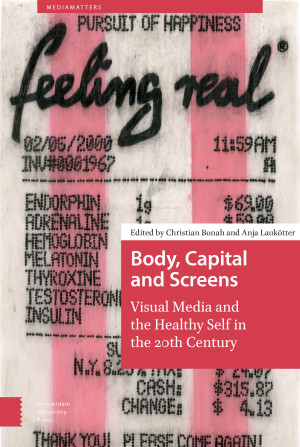"From the mid-twentieth century onwards, televisual media has actively shaped relations between human bodies, health practices and market forces. By paying close critical attention to the nuances of these connections, Body, Capital and Screens makes an important intervention in the field of European and global health history, and presents a convincing argument for the value of engaging with visual resources in historiographic research."
- Fiona Johnstone, Durham University, European Journal for the History of Medicine and Health (2021)
"Die beiden Wissenschaftler_innen, die bereits zuvor in Co-Autorenschaft veröffentlichten, verbinden elf Beiträge, die auf der Mikroebene visuelle Kommunikationsformen analysieren. Dabei bearbeiten die Autor_innen dokumentarische Filme, Lehrfilme und Fernsehformate ebenso wie Amateurvideos. So passt sich das Buch perfekt in die Reihe „Media Matters“ der Amsterdam University Press ein, die den Fokus auf die Verflechtungen von Materialität und Performativität in alten und neuen Medien legt. [...] Den Herausgeber_innen gelingt es, strategische Gesundheitskommunikation und Medienwissenschaft zu vereinen. Diese interdisziplinäre Forschungsperspektive findet im deutschsprachigen Raum erst selten Anwendung."
- Charmaine Voigt (Leipzig), MEDIENwissenschaft 03-04/2021
"Der von Christian Bonah und Anja Laukötter herausgegebene Sammelband ist ein überaus gelungenes Beispiel für die Implementierung der Funktionsprinzipien des zeitgemäßen historisch-kulturwissenschaftlichen Denkens in eine interdisziplinäre und international ausgerichtete Veröffentlichung. [...] Die immense Vielfalt an inhaltlichen Positionen und Ergebnissen, die vor diesem Hintergrund an konkreten thematischen Beispielen deutlich werden, macht den Sammelband in seiner Gänze zu einem höchst anregenden und lesenswerten Text."
- Stefan Zahlmann, Institut für Geschichte, Universität Wien, H-Soz-Kult, 2021


